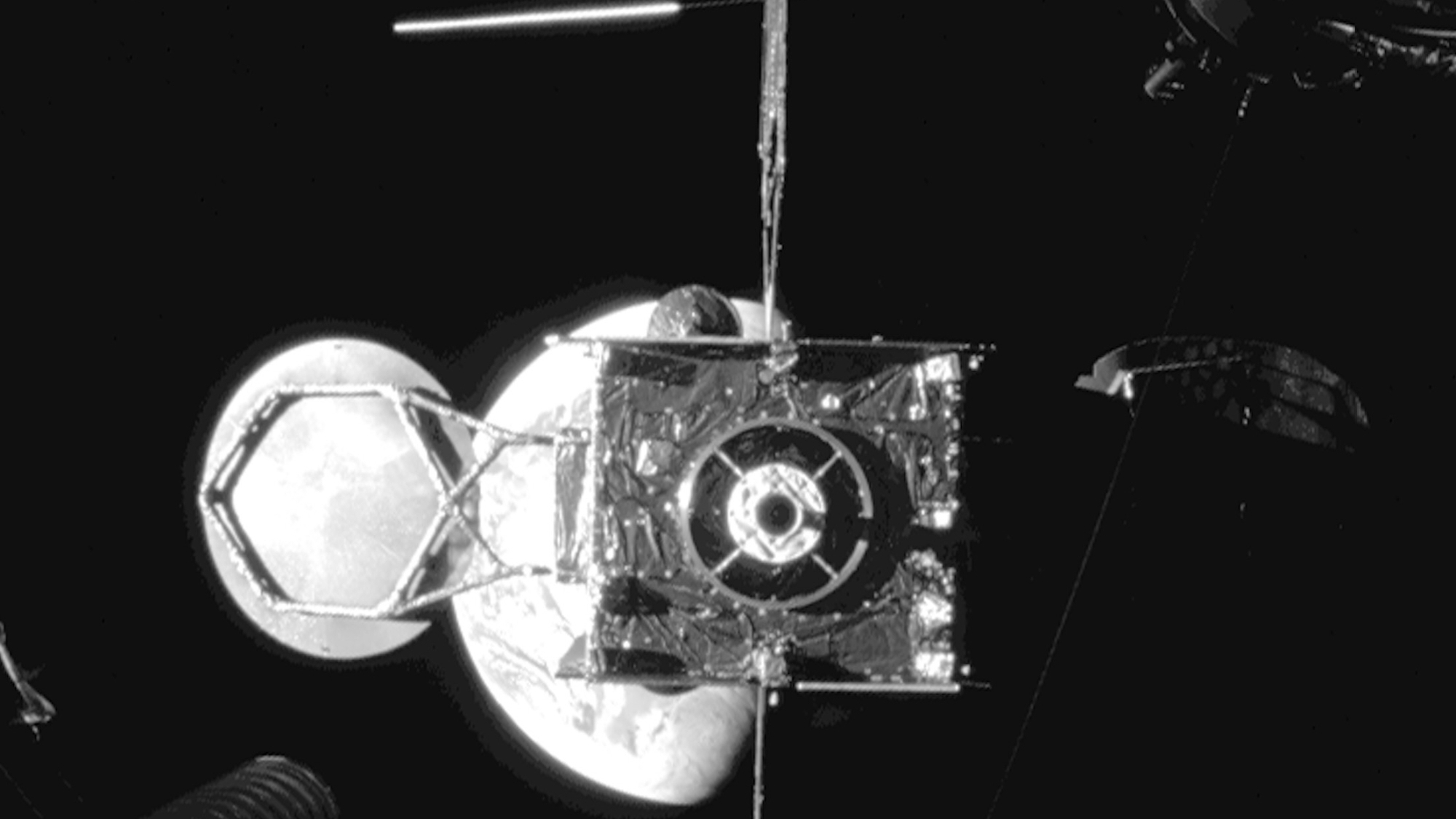Mold-A-Rama and the space shuttle over Earth: A space age toy story
The once state-of-the-art winged spacecraft has joined Mold-A-Rama machines as being vintage.
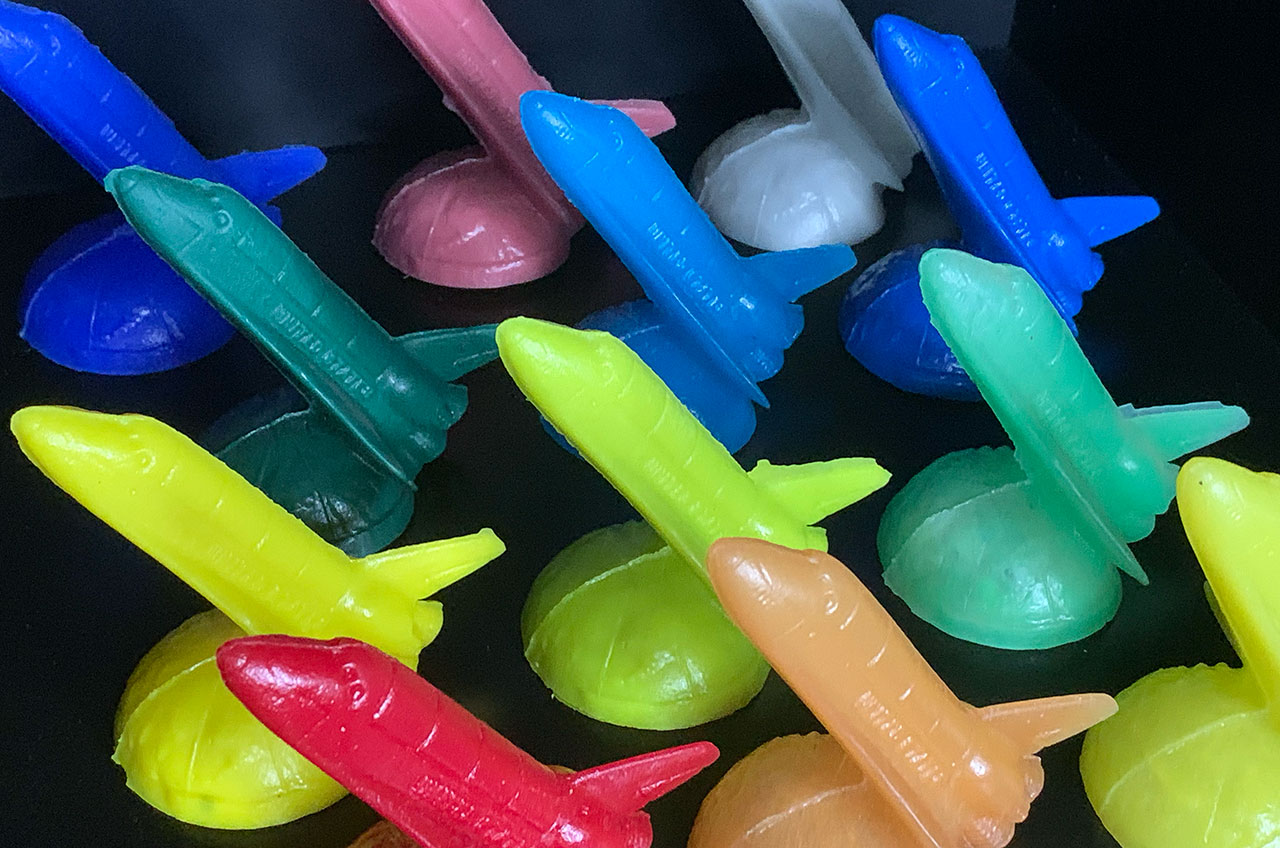
NASA's space shuttle reentered orbit this fall after a 15-month retirement — and this time, it was bright blue.
Outlasting the real winged spacecraft by more than a decade, the new space shuttle orbiters are identical to the first ones pulled out in 1981, but this time they are launching from Chicago.
"'Mold-A-Rama: Molded for the Future' an exhibition at the Museum of Science and Industry (MSI), tells the story of the beloved retro machines, which make plastic figurines right before your eyes. For over 60 years, Mold-A-Rama machines have pumped out hundreds of varieties of collectible plastic novelties, while providing guests a peek into mass production," read a release about the exhibit.
Now entering its second year on display, the MSI gallery only recently added the space shuttle, replacing a model of the Washington Capitol building in September. But the exhibit is only the latest "mission" for the space shuttle mold, which was introduced the same year the NASA spacecraft first lifted off.
Related: NASA's space shuttles: Where are they now?
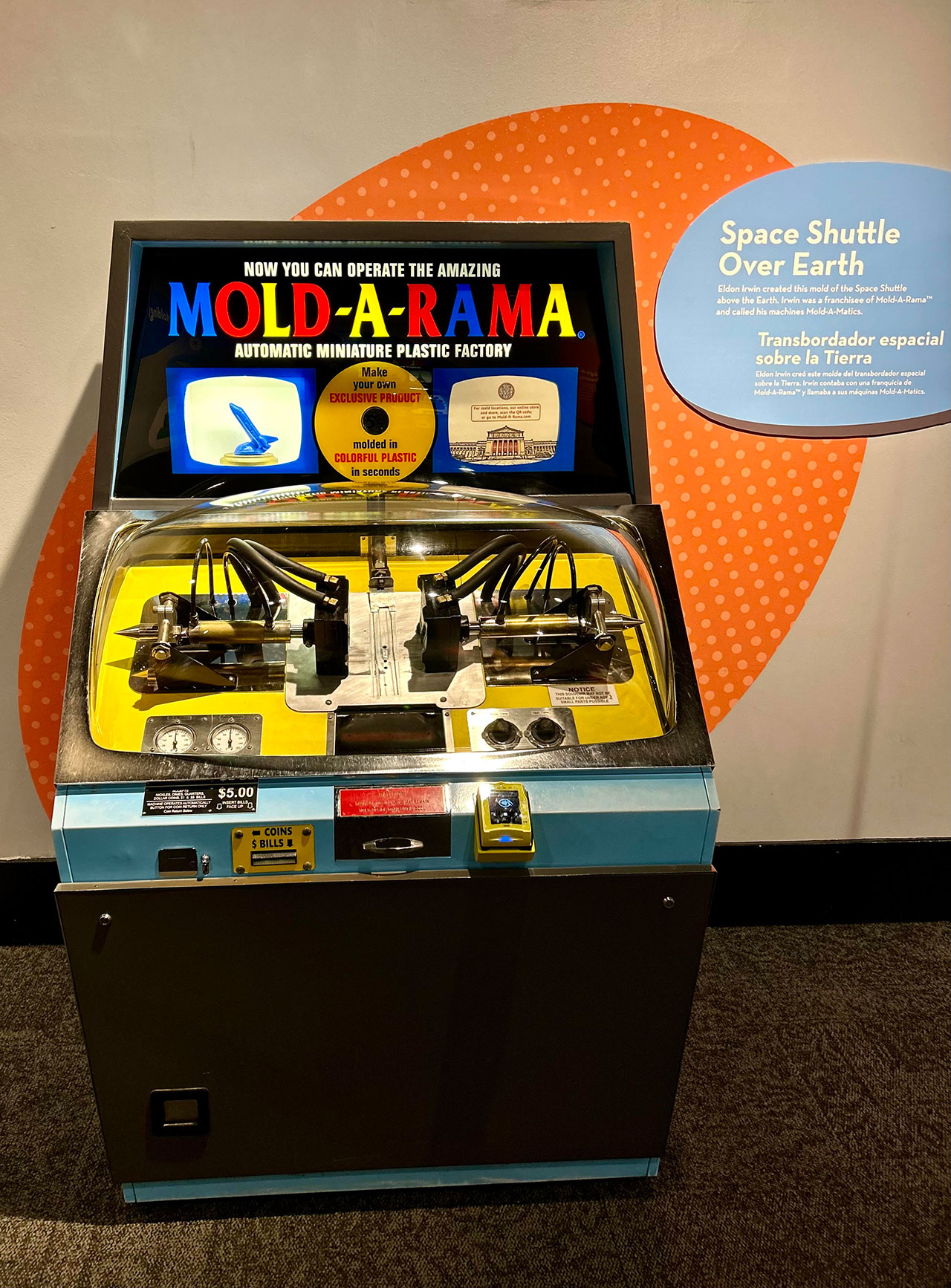
"The space shuttle is a fairly difficult subject to create using a two-piece mold," Paul Jones, whose father in 1971 founded the company now known as Mold-A-Rama, Inc., said in an interview with collectSPACE.com. "There was much discussion between Eldon Irwin and my father Bill Jones as to how to split the shuttle."
Irwin designed the "space shuttle over Earth" mold, choosing to split the orbiter down the middle. As the story goes, he made the mold with the intention of placing machines at NASA's Kennedy Space Center for the STS-1 launch, but ran out of time. Instead, the "space shuttle over Earth" debuted at a Florida visitor center along the state turnpike.
The "space shuttle over Earth" mold is called such because the winged orbiter is mounted at an angle atop a hemispheric base complete with cloud and continent details. In addition to capturing the general shape of the spacecraft, the model also includes the shuttle's forward windows, payload bay door seam lines and even the "United States" markings along its sides.
The shuttle shuttle is made by the Mold-A-Rama machine just as any number of other molds have been made, including animals, famous buildings, aircraft, trains and trademark characters like Disney's Mickey Mouse and Universal Studios' Frankenstein monster. After inserting the fee (at MSI, it is $5), the machine comes to life, using hydraulics to push the two sides of the mold together before injecting the hot plastic. After holding the mold together under pressure long enough for the plastic to set, the two sides separate and an arm extends to push the finished space shuttle toy into a slot for the user to collect.
The whole process takes about a minute to complete.
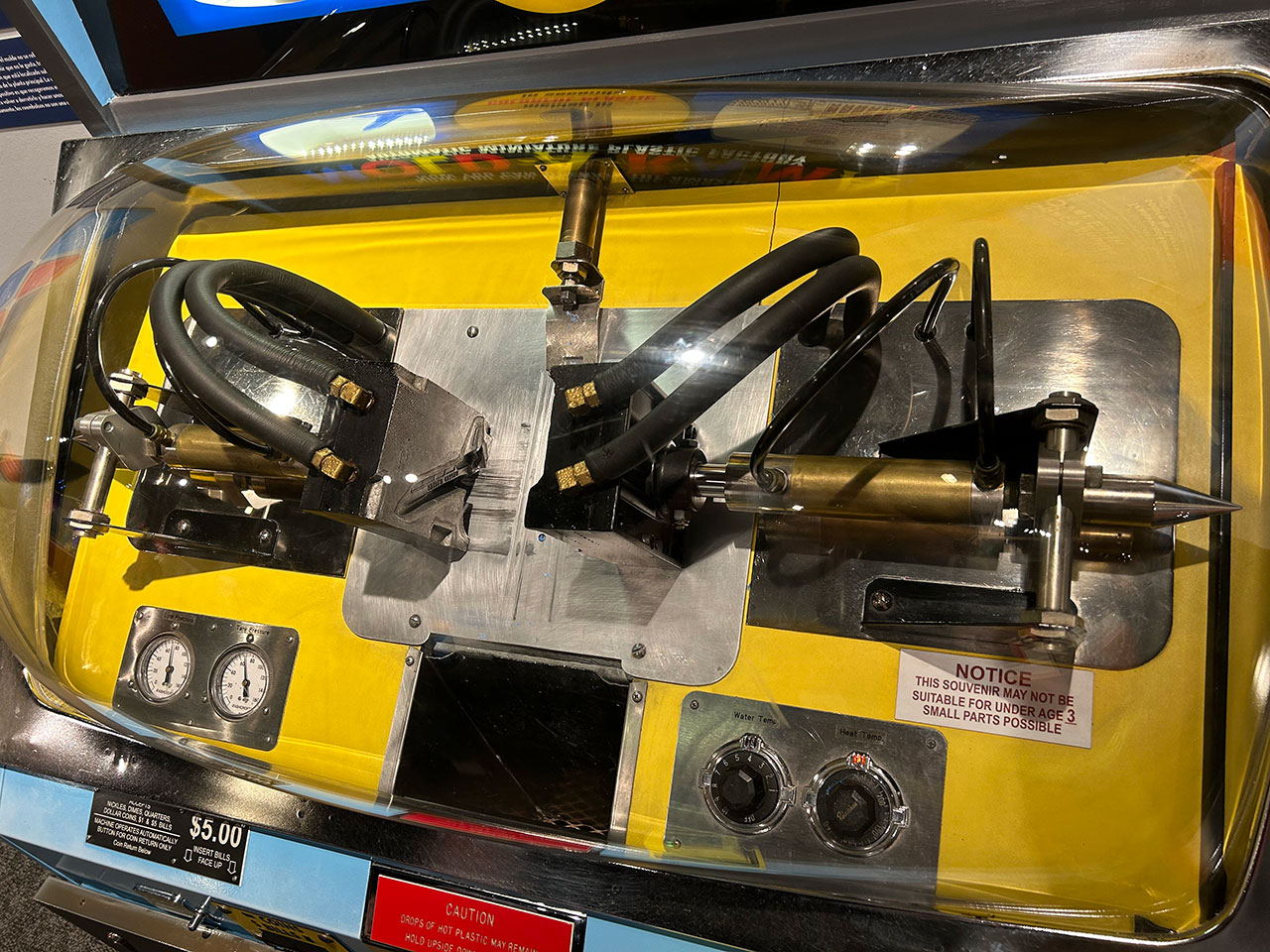
"The space shuttle over Earth mold is an awesome design and with a little imagination you get a physical representation of the shuttle orbiting the planet," said Brad MacKinnon, a Michigan-based Mold-A-Rama collector who has traveled around the country to add to his collection of more than 580 Mold-A-Rama toys. "This mold in particular is a fun way to get kids to think about space travel."
Irwin's company, now run by his grandson under the brand Mold-A-Matic, operates machines across Florida, Tennessee, Oklahoma and Ohio (Jones' Mold-A-Rama machines are in Illinois, Wisconsin, Michigan, Minnesota and Texas). Unfortunately, neither company has clear records as to where Irwin's space shuttle was available or in what colors it was offered and when.
"It is easier to move or change a mold or machine than change the color of a machine's plastic," said Jones. "The history of molds is not recorded and because it was run in several places and several colors it would be very hard to date."
Jones estimates that about a dozen metal molds exist of Irwin's design. His company acquired one set (now in use at MSI), Mold-A-Matic retains several and some have been sold to private collectors. Shuttles produced from the molds are known to exist in a full spectrum of colors, from black and white to multiple shades of red, orange, yellow, blue, green and violet, as well as silver, bronze and gold.
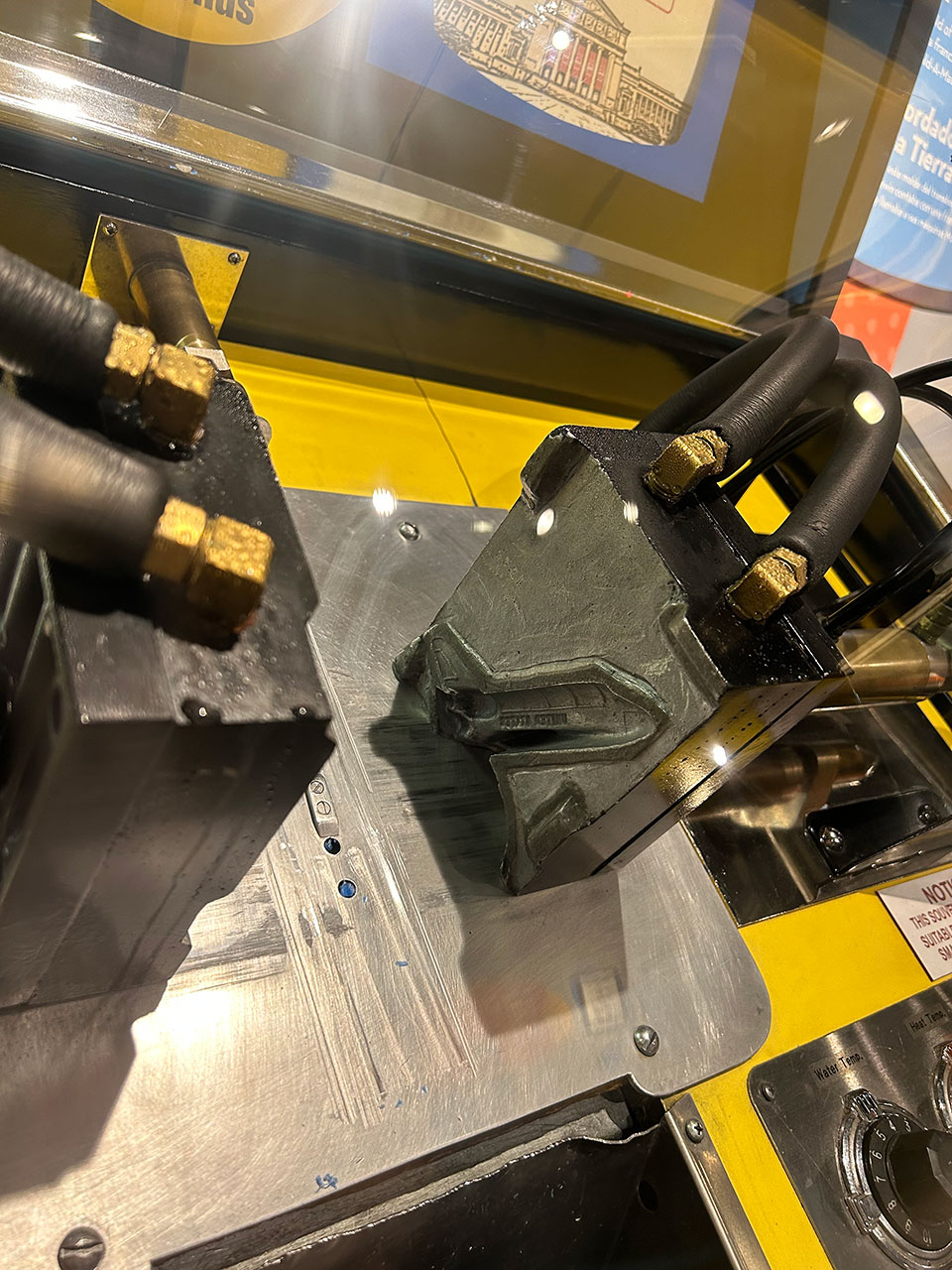
Prior to MSI, the space shuttle over Earth mold was cast in bright red plastic at the Henry Ford Museum in Dearborn, Michigan from February through June 2022.
Irwin also designed a mold with a shuttle mated to its external tank and solid rocket boosters and Jones designed one that set a record for the largest mold yet. The latter is distinguished by being injected with plastic from its base, such that it includes the orbiter's landing gear.
Other space-themed Mold-A-Rama models have included Mercury and Gemini capsules, the Apollo lunar module, an astronaut and a Titan IIIC rocket. Despite NASA retiring its shuttle fleet in 2011, Mold-A-Rama continues to offer it, though to less of a demand then before.
"The space shuttle mold typically does sell well. Never has it led a location in sales — at least not for us," said Jones. "Sales have seemed to slow with the shuttles no longer flying."
Still, Jones sees a future for space-themed Mold-A-Rama molds.
"If we were going to start any new space projects it would probably be the SpaceX Dragon," he said, noting that MSI added one of the spacecraft to its collection one year ago.
Click through to collectSPACE to watch the Mold-A-Rama machine in action making a space shuttle over Earth plastic model.
Get the Space.com Newsletter
Breaking space news, the latest updates on rocket launches, skywatching events and more!
Follow collectSPACE.com on Facebook and on Twitter at @collectSPACE. Copyright 2023 collectSPACE.com. All rights reserved.
Join our Space Forums to keep talking space on the latest missions, night sky and more! And if you have a news tip, correction or comment, let us know at: community@space.com.

Robert Pearlman is a space historian, journalist and the founder and editor of collectSPACE.com, a daily news publication and community devoted to space history with a particular focus on how and where space exploration intersects with pop culture. Pearlman is also a contributing writer for Space.com and co-author of "Space Stations: The Art, Science, and Reality of Working in Space” published by Smithsonian Books in 2018.In 2009, he was inducted into the U.S. Space Camp Hall of Fame in Huntsville, Alabama. In 2021, he was honored by the American Astronautical Society with the Ordway Award for Sustained Excellence in Spaceflight History. In 2023, the National Space Club Florida Committee recognized Pearlman with the Kolcum News and Communications Award for excellence in telling the space story along the Space Coast and throughout the world.










